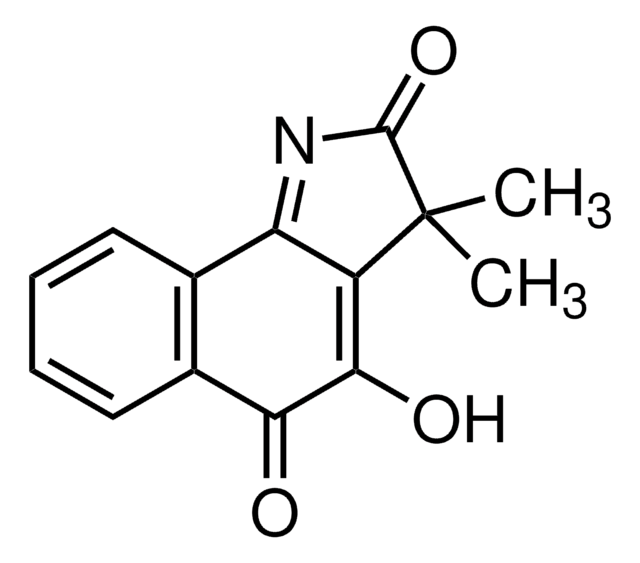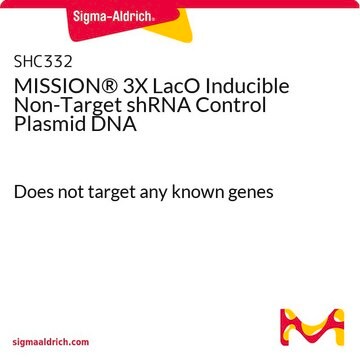R2033
RK-682
≥98% (HPLC)
Synonym(s):
(R)-3-Hexadecanoyl-5-hydroxymethyltetronic acid, (R)-4-Hydroxy-5-(hydroxymethyl)-3-(1-oxohexadecyl)-2(5H)-furanone
About This Item
Recommended Products
Quality Level
Assay
≥98% (HPLC)
form
powder
color
white to tan
solubility
DMSO, heptane and xylene: ≥8 mg/mL
storage temp.
−20°C
SMILES string
CCCCCCCCCCCCCCCC(=O)C1=C(O)[C@@H](CO)OC1=O
InChI
1S/C21H36O5/c1-2-3-4-5-6-7-8-9-10-11-12-13-14-15-17(23)19-20(24)18(16-22)26-21(19)25/h18,22,24H,2-16H2,1H3/t18-/m1/s1
InChI key
KZTSLHQKWLYYAC-GOSISDBHSA-N
Application
- as a positive control in high-performance liquid chromatography (HPLC)
- as a reference compound in high-performance liqiud chromatography (HPLC)
- as a pan-protein tyrosine phosphatase non-receptor type (PTPN) inhibitor to study its effects on the activated lymphocytes
Biochem/physiol Actions
Features and Benefits
Storage Class Code
11 - Combustible Solids
WGK
WGK 3
Flash Point(F)
Not applicable
Flash Point(C)
Not applicable
Certificates of Analysis (COA)
Search for Certificates of Analysis (COA) by entering the products Lot/Batch Number. Lot and Batch Numbers can be found on a product’s label following the words ‘Lot’ or ‘Batch’.
Already Own This Product?
Find documentation for the products that you have recently purchased in the Document Library.
Articles
Protein tyrosine phosphatases' catalytic mechanism involves transient phosphorylation.
Protein tyrosine phosphatases' catalytic mechanism involves transient phosphorylation.
Protein tyrosine phosphatases' catalytic mechanism involves transient phosphorylation.
Protein tyrosine phosphatases' catalytic mechanism involves transient phosphorylation.
Our team of scientists has experience in all areas of research including Life Science, Material Science, Chemical Synthesis, Chromatography, Analytical and many others.
Contact Technical Service








